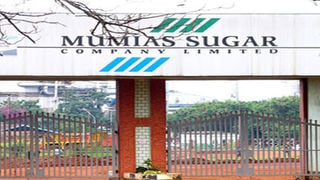
Mumias Sugar Company in Kakamega. High Court has declined to quash the procurement proceedings that awarded Uganda’s Sarrai Group a 20-year lease to operate the company.
| File | Nation Media GroupNews
Premium
Court quashes bid to overturn Ugandan firm’s Mumias Sugar deal
The High Court has declined to quash the procurement proceedings that awarded Uganda’s Sarrai Group a 20-year lease to operate Mumias Sugar Company, in one of the multiple suits surrounding the collapsed miller.
Dismissing a suit filed by Tumaz and Tumaz Enterprises, Justice Anthony Ndung’u yesterday (Thursday) ruled that actions of agents such as receiver-managers cannot be challenged in court when their principals are known.
The judge added that the Judicial Review Division of the High Court did not have authority to overturn decisions made by receiver-managers.
Mumias Sugar receiver-manager Ponangipalli Venkata Ramana Rao declared Sarrai Group the successful bidder on December 22, 2021.
Tumaz and Tumaz Enterprises, which is owned by Butere-based businessperson Julius Mwale, sued Mr Rao and Sarrai Group seeking to have the leasing deal quashed.
Mr Mwale asked Justice Ndung’u to order a fresh tendering process.
Justice Ndung’u held that he could not delve into the dispute because the leasing deal was at the centre of several other cases in which both Mr Mwale’s company and Mr Rao were enjoined.
He added that Mr Mwale’s grievances should have been presented before the same division that ordered a flawless procurement process.
The procurement was Okayed by the Commercial and Admiralty division of the High Court.
“The court can in no circumstances allow a party to play lottery with the judicial process. Accommodating that trend would surely expose the judicial process to public odium and cause loss of confidence and faith in the justice system, a major blow to the rule of law,” Justice Ndung’u said.
“An action may not be brought against an agent of a disclosed or known principal. In any event, having found that the duties of a receiver are not in their very nature amenable to judicial review, Mr Rao is improperly sued in these proceedings,” the judge added.
Mr Mwale’s company has been ordered to pay legal costs to Mr Rao and the Sarrai Group.
Justice Ndung’u said Mr Rao was appointed administrator by another judge – Justice Alfred Mabeya – who has authority to quash decisions made by the receiver-manager.
Mr Mwale had earlier lost his bid to have the Public Procurement Administrative Review Board (PPARB) order a fresh search for strategic investors to operate Mumias Sugar Company’s assets. Another petition he filed against Mr Rao was also dismissed.
He said he was aware that the same firm had filed another case in Kakamega and joined another in Nairobi that was filed by five farmers.
Tumaz and Tumaz has also joined two other cases filed by farmers who are challenging Sarrai Group’s leasing deal.
The company bid Sh27.6 billion for the 20-year lease. West Kenya Sugar bid Sh36 billion.
Sarrai’s bid of Sh6.2 billion was declared the best on account of other factors excluding price.
Mr Rao has said in court papers that West Kenya would have become a monopoly if awarded the lease, while Mr Mwale’s bid did not answer technical questions on milling operations satisfactorily.
Mr Mwale argued that the opening of bids was not transparent, as it lacked confirmation from the other companies seeking the leasing contract.
Mr Rao insisted Mr Mwale had been forum-shopping by filing and joining several cases involving Mumias Sugar, and was as a result undeserving of any reliefs from the court.
Sarrai Group representative Rakesh Kumar argued that Tumaz and Tumaz failed to provide evidence of any wrongdoing in the procurement process.





